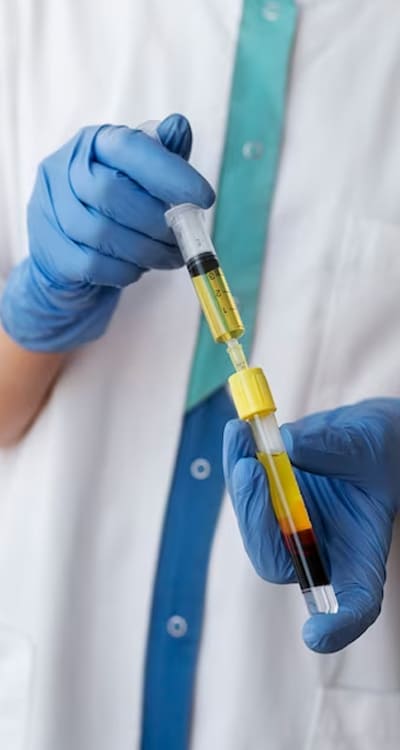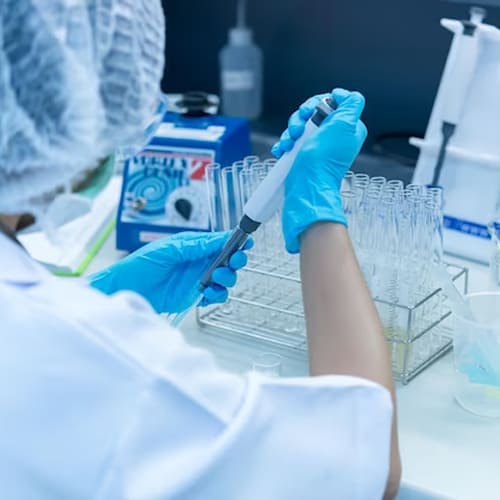Pre-Implantation
Genetic Diagnosis
Embark on your fertility journey with confidence at SS Fertility Centre by integrating Pre-Implantation Genetic Diagnosis (PGD) into your treatment plan. PGD is a crucial method designed to identify genetically normal embryos, significantly enhancing the chances of a successful and healthy pregnancy.


What is PGD?
Preimplantation Genetic Diagnosis, is an advanced genetics test used to study the chromosomes of the embryo. It can improve a woman’s chance of a baby being born with a normal chromosomes. It increases the pregnancy rate, reduces pregnancy loss and increases live births.
How Is It Done?
After routineICSI and embryo development ,on the day 3 of the embryo development ,each cell is usually representative of all cells from that particular embryo. One of the cells of the embryo is removed with the use of microsurgical techniques. The selected cell is analysed by a technique called FISH (fluorescence in situ hybridization) to identify the chromosomes of the cell.In the meantime, during PGD, the embryos develop undisturbed in an incubator.
Which patients stand to benefit from PGD?
- Couples with repeated IVF failures
- Recurrent Pregnancy Loss
- Previouschromosomally abnormal conceptions
- Single gene defects
The first step in any fertility treatment is to identify and understand the reasons why pregnancy has not occurred naturally. Initially we recommend. At your initial consultation, we will review your medical history.


Common questions
It does not have any effect on the normal development of the embryo. The removal of one cell does not reduce the ability of the embryo to implant.
50% of embryos from women who are 35 to 39 have chromosomal abnormalities. For those over 40, the percentages increase to 80% or higher.
- PGD can double the chance of implantation of the embryo,
- Reduce pregnancy loss as much as three-fold
- Increase the likelihood of live births.
The term single gene disorder refers to any one of the hundreds of inherited diseases caused by mutation (change) in a single gene.

Start your
fertility journey
Begin your fertility treatment journey with the support of our caring nurse inquiry team. As the best fertility hospital in Chennai, the SS Fertility Center is here to provide you with free and insightful guidance, regardless of where you are in the process. We'll help you make informed decisions and take the next steps toward your desired procedure.
Book an appointment
